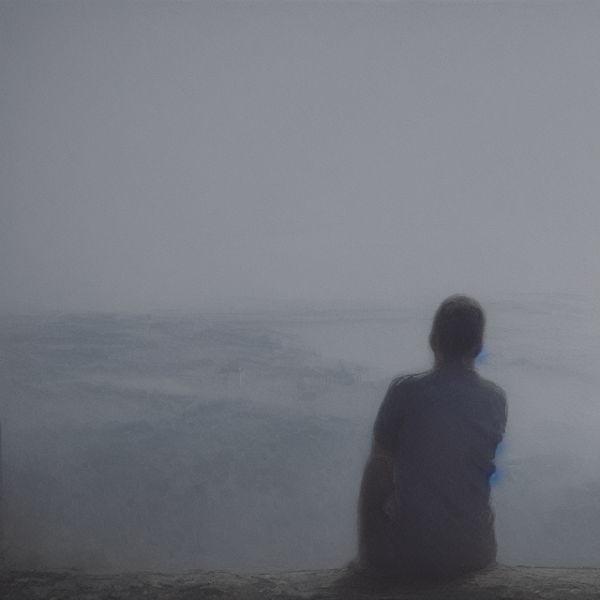The Dilemma of Prolonged Grief Disorder

Eight years ago I was just starting work as a House Officer when I received a call that my grandmother passed away. This news came as a shock to me when just a few days ago I was talking to her over the phone wishing her a happy birthday. I broke down, and the thought of deferring my housemanship was running through my mind. But my father talked me out of it, he told me that my late grandmother would not want me to quit for her. So I continue. I was at Sibu Hospital at that time, my family was in Kuching, Sarawak. When the news of her death came, I was alone in a foreign place away from my family. I came home alone from work every day, crying on my bed thinking of her. All the guilt of not being at home when it happened plays into my mind. Thankfully, work distracted me from it.
Housemanship was tough. I went to work at 4:30 am and came back home at 11:00 pm at night. Some days, I have to choose whether to eat or sleep because I have less than 8 hours at home to rest. Not to mention the emotional challenges that comes with it. Despite all that, I can say that in the first year of housemanship, I had no emotion at work. I don’t feel sad, angry, or even happy. “Nothing is more painful than losing her (my grandmother), no pain at work can top it”, that is what kept me going on. When I visited home during the holidays, I can’t talk about her, I can’t make myself visit her grave. I denied her death and tried to think that she was still alive but just away. This goes on for two years.
Everyone in this world had experienced the loss of someone or something dear and important to them. The feeling of shock, emptiness, sadness, or even anger that comes with it became an integral part of grieving. Some of us may cope with grief, but others may opt for more unhealthy ways to numb difficult feelings by using drugs or alcohol. Ultimately, all of us just want to continue living with the loss as best as we can. Despite being a painful experience, grieving can be considered part and parcel of life.
Last year, the American Psychiatric Association (APA) officially added Prolonged Grief Disorder (PGD) to the latest edition of the Diagnostic and Statistical Manual of Mental Disorders (DSM) 5-TR which is used as a guide for psychiatric diagnoses by psychiatrists and psychologists. Prolonged Grief Disorder was described as a persistent longing for the deceased person, intense emotional pain, along with preoccupation with thoughts and memories of the deceased. To be diagnosed with PGD, a person must also experience at least three of eight additional symptoms that include “disbelief, intense emotional pain, the feeling of identity confusion, avoidance of reminders of the loss, feelings of numbness, intense loneliness, meaninglessness, or difficulty engaging in ongoing life” after the death of a loved one, and occurred for at least one year.
Within the psychiatry fraternity, debates are still going on regarding this diagnosis. Are we pathologizing a normal experience in life? If I were to reflect on my own experience, I think I fit the criteria to be diagnosed with PGD. Does it mean my experience was not normal? Having PGD as a diagnosis in the DSM may lead to the risk of over diagnosing a normal reaction to loss as a disorder. The experience of bereavement itself, which is needed for someone to process their grief, may be stigmatized as it is viewed as an illness. The criteria of duration (1 year) will lead to people rushing their grief work with the understanding that any grief of more than a year is abnormal.
It is not all bad with PGD diagnosis. Before this, unhealthy grief was termed complicated grief when someone copes with the loss through dysfunctional means. Some of them may need professional help to work through the grieving process. Without a formal diagnosis, it is difficult for people and professionals to be aware of this problem and actively manage it. Overseas, a formal diagnosis allows them to get professional help as it is covered by insurance. A patient of mine, a father, came to seek treatment for a mood disorder and further exploration revealed that his illness was precipitated by a difficult relationship with his adult children. This difficulty came after his wife passed away from cancer 12 years ago. He develop a sense of guilt and self-blame for the loss but externalized it toward his children through anger and irritability. Retrospectively it was obvious to see that if he were to receive proper support during his grief, all these may not occur. Maybe by having PGD formally in the DSM, we may be more sensitive in detecting and offering help to those who need it.
Probably in the future, refinement of the diagnostic criteria for PGD can be conducted. We still need it to be a diagnosable condition to ensure no one would experience complications in life as a result of unhealthy grieving. At the same time, grief should not be overly pathologized and people should be allowed to grieve as long as they need to. For grief is the price of love.
Dr. Nur Iwana Bt. Abdul Taib
Medical Officer (Psychiatry)
TABAH
